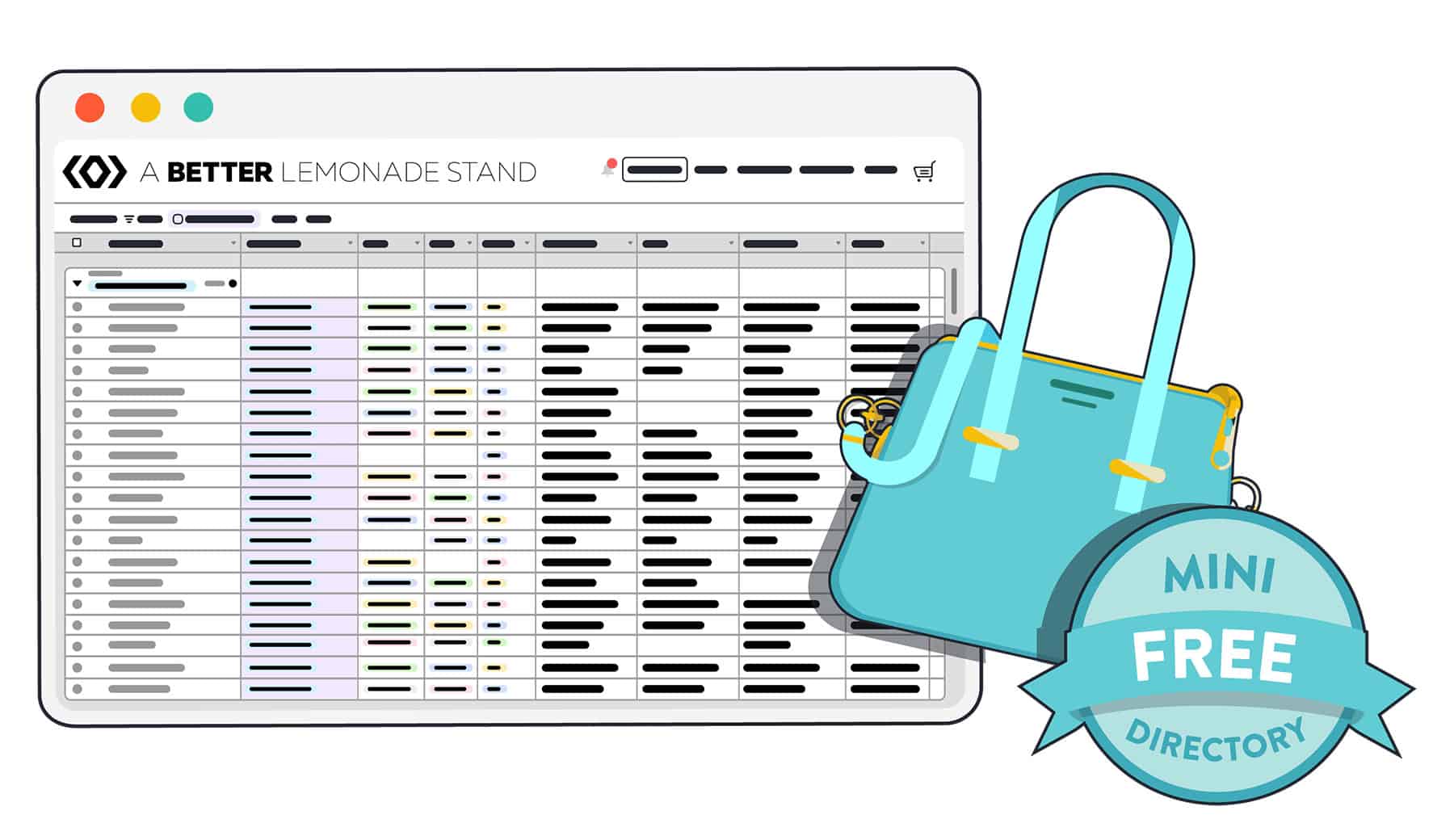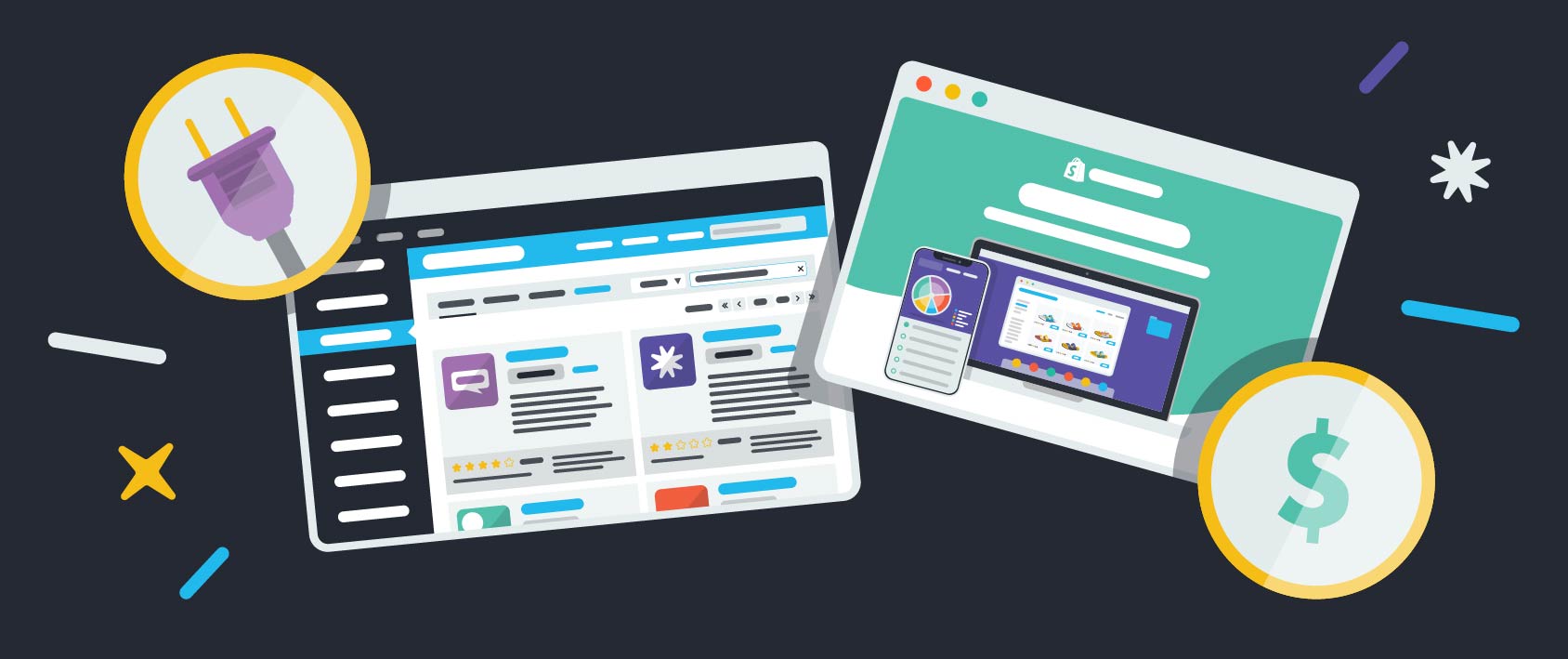
How to Find & Work With Private Label Manufacturers + Free Private Label Manufacturers Directory
Have you ever heard of the term “private label” and aren’t really sure what it’s all about, or maybe it just sounds interesting? In this article, we’re discussing everything there is to know about the private label business model, what’s so great about it, the disadvantages of it, how to choose private label manufacturers, where to source private label products from, and how to start a private label business. Ready to get started? Read on.
What is Private Label?
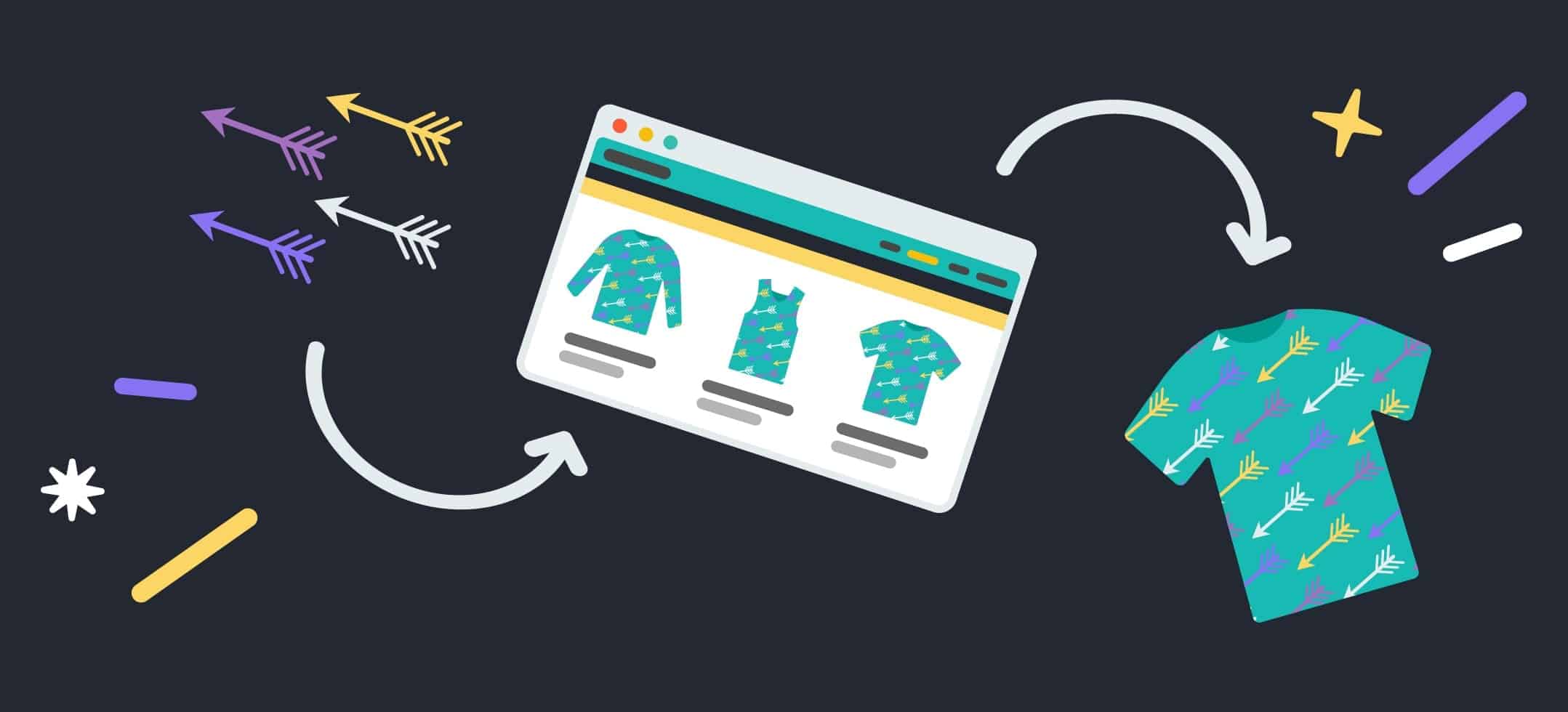
Private label is a type of business model where a merchant sources products from a supplier who manufactures their products with their own materials and formulations but then labels the products with the merchant’s own branding. Another term for private label is “white label” and, in general, both terms are used interchangeably to describe the private label process.
In order for the private label business model to work, there must be the two main players in the transaction: The merchants and the suppliers. When it comes to private labeling products, merchants are looking for suppliers who can manufacture a product for them based on the formulations, designs, and materials the supplier already uses so the merchant can then put their own branding on the product and/or its packaging. In the supplier’s case, they’re often looking to private label the types of products they have the expertise and capabilities to manufacture, and then to sell those products on a wholesale level to merchants. Most private label suppliers are open to making small modifications to their products in order to make them more unique for the merchants they create the products for.
Not all suppliers are interested in participating in the private label business model and not all merchants are interested in sourcing private label products. Private labeling is a manufacturing process that’s a mix between manufacturing, wholesaling, and sometimes even dropshipping, so it’s not always a supplier’s first choice when it comes to creating products for merchants to sell.
Other business models like manufacturing and wholesaling are a bit more straightforward for the supplier because they don’t have to make any modifications to their products, or they work with merchants to completely create their product from scratch. Another catch when it comes to private labeling is that although the suppliers are manufacturing the products using their own methods, materials, and formulations they’re generally expected to remove all branding from the final product itself so merchants can put their own branding on the product, which some suppliers find off-putting.
For these reasons, it’s important to find suppliers who understand the private label process and the manufacturing specifications they’re expected to maintain so that they’re on the same page as the merchants. This can make finding private label manufacturers a struggle, which is why we’ve created a Private Label Manufacturers Directory so you can find the private label suppliers you’re looking for more easily.
It’s also important to note that the private label business model doesn’t work for all products. Usually, private label products are items that don’t need any modifications to bring them to market, or they’re a product that just needs a few tweaks here and there first before it can be brought to market. Private labeling doesn’t work for products that are new innovations and inventions, or products that need to be completely manufactured from new molds, materials or design specifications.
Examples of Private Label Products
Most private label products are items that already exist, and with a few minor changes made by the manufacturer, the merchant can sell them in their store. These types of products are usually:
- Clothing & Apparel
- Accessories
- Shoes
- Foods
- Drinks
- Cosmetics & Beauty Products
- Vitamins & Nutraceuticals
- Furniture
- Electronics & Computers
The key here is that none of these products are new or innovative. That doesn’t mean they’re bad products or that they won’t sell, it just means they’re products that already exist and consumers are already buying them. Because of this, all they usually need are a couple new or innovative modifications made to them to turn them into a product that can be private labeled.
Take Luxy Hair, as an example: When their hair extensions brand first launched they sourced their product from a hair extensions supplier who made modifications to the length, color, and thickness of their existing hair extension product based on what Luxy Hair wanted their brand’s product to be like. Hair extensions were already a product that existed on the market, the supplier they found was already manufacturing hair extensions, and Luxy Hair made modifications to the type of product they were already creating to create the kind of product they were looking to sell on the market. This is an example of private labeling.
What are Private Label Manufacturers
Private label manufacturers are suppliers who manufacturer products from scratch based on their own methods, formulations or designs, and they provide their products at a wholesale price to merchants. Private label manufacturers can also be manufacturers and wholesalers as well as private label suppliers, the only difference is that within the private label business model they’re willing to manufacturer their own products but label them under other merchants’ branding. Private label suppliers are also usually willing to make small changes to the product in order for it to meet a merchants’ specifications.
This might mean that the supplier sells the same products to multiple merchants, just packaged differently. On the consumer level, the products looks different because they’re being sold by different brands when, in actuality, they’re the same product just with different packaging and branding on the labels.
That, however, isn’t always the case and completely depends on the private label manufacturer and the type of private label products they create. While some private label manufacturers work with many different merchants and provide the same products for each of them, some private label manufacturers only work with a few merchants and create bespoke products for each one that are modified versions of the foundational type of product they specialize in manufacturing. It all depends on each private label manufacturer and how they do business which means that it will likely vary from one to the next.
Why Choose the Private Label Business Model
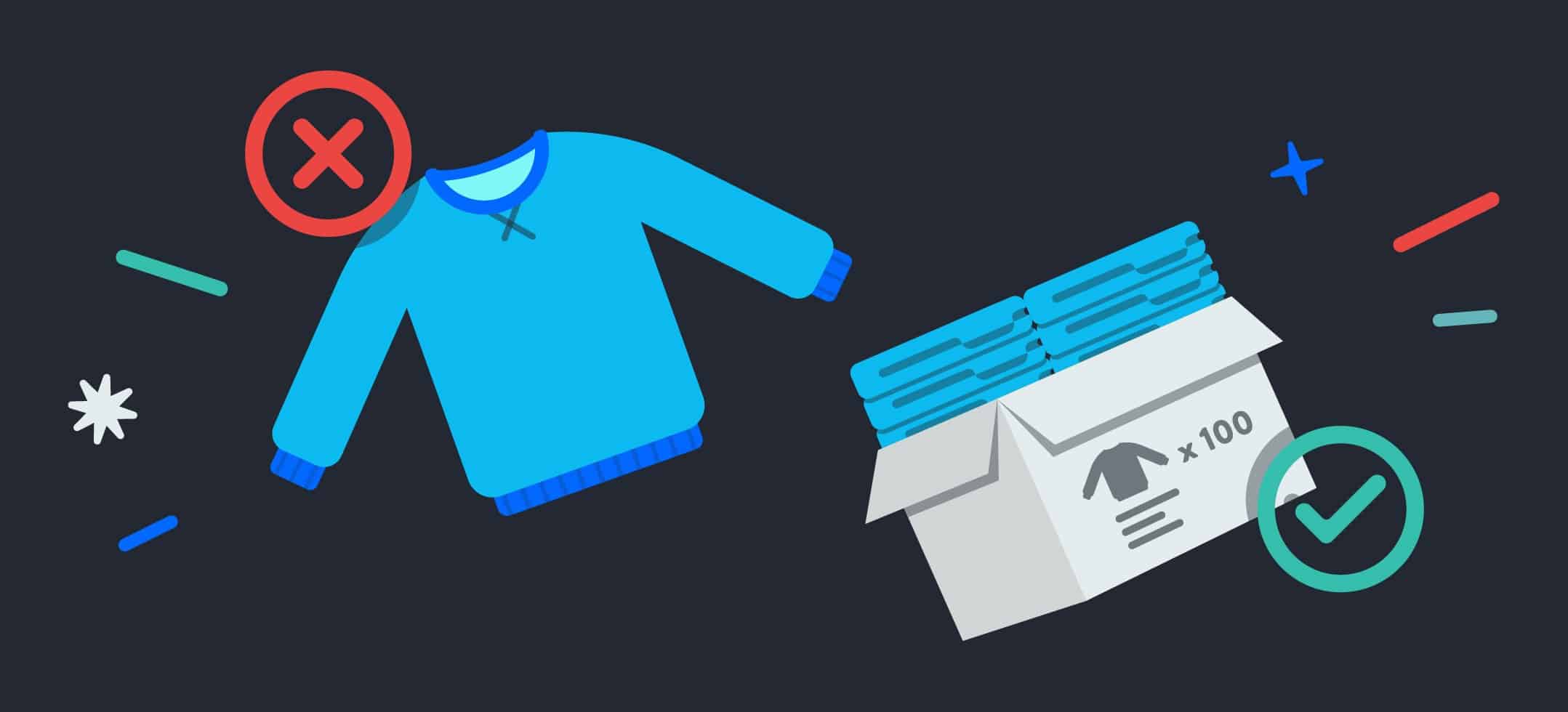
There are several reasons why the private label business model stands out from other business models, particularly from the merchant’s perspective. Compared to other types of business models like manufacturing, wholesaling, and dropshipping, there are elements of the private label business model that are completely unique and offer an entirely new set of advantages.
The notable differences the private label business model has, compared to other business models, include:
- Brand Control: Other than manufacturing, most business models don’t allow you to have total control over the branding process. With private labeling, you as the merchant are able to add your branding to the products that private label manufacturers create for you and, in most cases, you’ll be able to label and package the products exactly how you want to.
- Direct Product Control: As the merchant, you work directly with the manufacturer to create a product that looks how you want it to, is made with the materials or ingredients you want it to be made with and is packaged in the kind of way you want it to be.
- Price Control: Because you have more say into the manufacturing process of the private label products you create with a supplier, you’re able to control more of the pricing structure and the profitability of the products you sell. Private labeling generally offers much more generous profit margins than dropshipping and more flexibility than wholesaling. It’s much more akin to the types of profit margins seen in the manufacturing business model.
- Ability to Compete in the Marketplace: Business models like dropshipping have such slim profit margins and offer products that are usually just as easy for other merchants to get a hold of too, so it’s hard to establish your brand as a major player in the marketplace when other merchants have just as easy access to your supply chain. Private label manufacturing limits some of this process and since you’ll be working directly with manufacturers, you can usually modify your supplier’s products so they can be unique to your store which it makes it more viable for you to stand out from your competitors.
- Ability to Start: You don’t have to have the manufacturing capabilities to create your products, that’s what your private label manufacturers are for, so it can be much more accessible to get started in the private label business model. Private labeling is similar to dropshipping in this way: The suppliers make the product and you as the merchant get to select which products you want to sell and then you can add them directly to your store. There are obviously many major differences between the dropshipping and private label business models, but the accessibility to start goes along a similar wavelength.
- Building a Loyal Customer Base: Since your products can be uniquely made for your store, you have the ability to stand out from your competitors and build a loyal customer base around your brand. This is something that dropshipping and wholesaling stores struggle with because, as a dropshipper, so many other merchants have easy access to the exact products you sell making it difficult to differentiate your store from others and, when it comes to wholesaling, you’re often just selling other brands in your store which doesn’t help your own brand stand out because customers could likely purchase those other brands elsewhere. Private labeling is able to mitigate these issues and makes it much more viable to build a following around your brand.
Disadvantages of Private Label
Although there are some very strong advantages in favor of the private label business model, it does come with its share of disadvantages as well. Here are some of the most common ones:
- Potential for Limited Branding Options: Although the private label business model allows for brands to have much more control over their product branding and the branding on their packaging, there still may be constraints depending on what the manufacturer is able to create. There could be limits on the type of labels used, the containers the products are housed in, the shipping packaging, etc. purely based on what the manufacturer can make or will let you use.
- Slightly Lower Profit Margins: Although the profit margins are much more generous than wholesale or dropship business models, there’s still a possibility that the profit margins will be slightly more limited than if you were to just source from a manufacturer that doesn’t offer private labeling. This might not always be the case, but it’s something to keep in mind.
- Limited Product Choices: With the private label business model, it’s generally not an option to create a new product completely from scratch. You have to work with what the manufacturer is able to create and then make minor adjustments to the product in order to make it your own. This means that you have a limited range of products you can create, which might not be ideal if you’re looking to manufacture something totally unique.
- MOQs: Usually, private label manufacturers operate by minimum order quantities (MOQs), which means that you as the merchant will be required to purchase hundreds or thousands of your products upfront to then sell to your customers. This is a very vast departure from the dropshipping business model which typically requires no MOQs at all which could be a major deterrent for entrepreneurs who don’t want to have lots of stock in storage or cannot meet the MOQ requirements.
- Competition: Since the products private label manufacturers provide are generally generic products that can be modified, this can play a part in making it difficult to stand out from other ecommerce sellers who also sell similar types of products.
How to Work with a Private Label Manufacturer
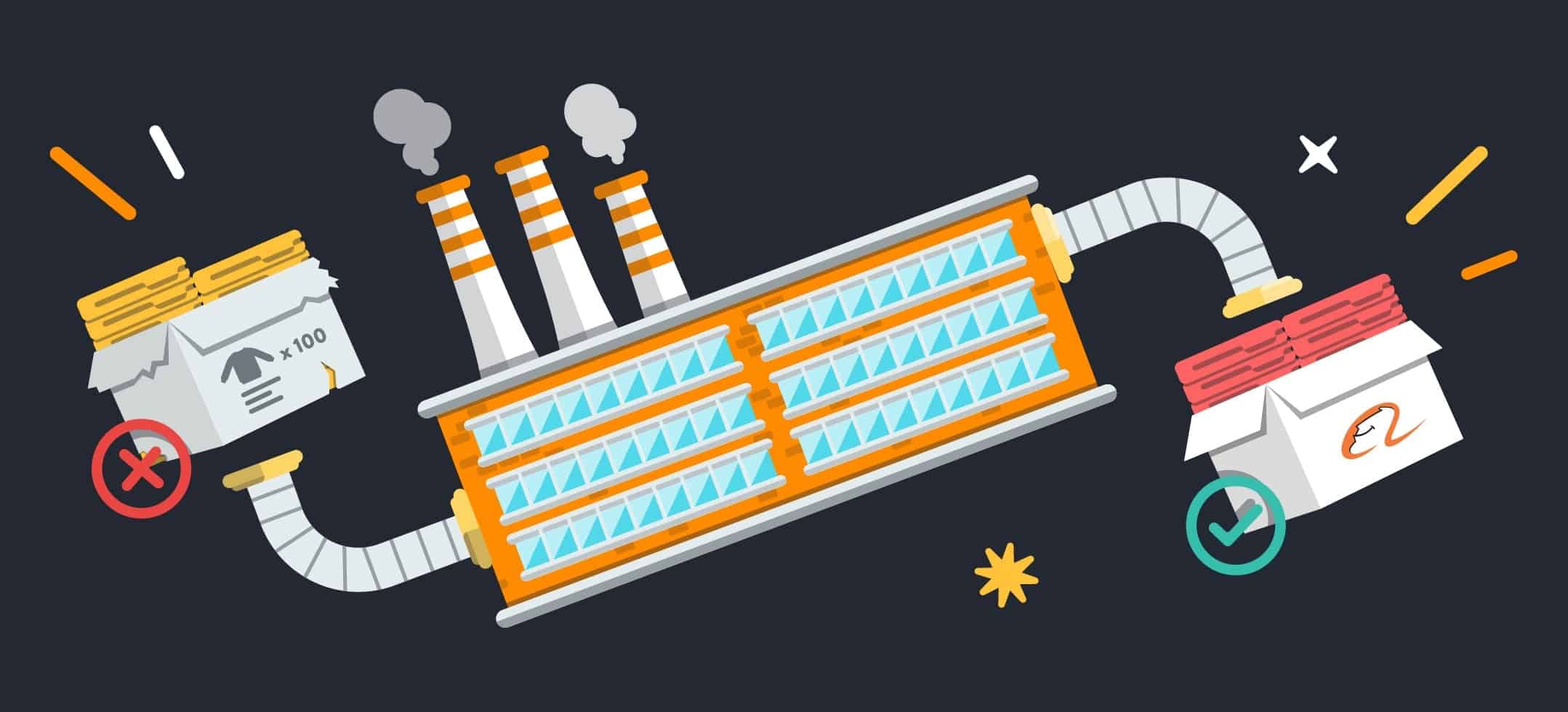
Your private label manufacturer is going to be an integral part of your business so finding the right supplier is absolutely crucial. Since private labeling is a bit of a niche type of business model, meaning that it’s not as common or routine as manufacturing or wholesaling, the private label process could look very different from one supplier to the next. This means that you’ll likely have to reach out to a few, or several, suppliers before you find the right supplier for your business who creates the exact products you’re looking for and operates in the exact way you want to conduct business.
First things first, decide what niche area of products you’re looking for so you can then look for them more efficiently, and then reach out to the ones who seem the most promising. We’ll discuss how to do this in the following sections.
Types of Private Label Manufacturers
Step one is to decide on the type of private label manufacturer you’re looking for. This will help you locate them more easily and it will help you source the products you want to sell online.
So, what kind of products do you want to sell online? Ask yourself that question first and it will help lead you to the types of private label manufacturers you’re looking for.
- Private Label Cosmetics: These private label suppliers manufacture all kinds of cosmetics, skincare, fragrance, and wellness products including but not limited to makeup, perfume, soap, cleansers, lotions, beard oils, bath products, shower gel, cosmetic tools, and more.
- Private Label Supplements & Private Label Vitamins: These private label suppliers manufacture wellness products including but not limited to vitamins, nutraceuticals, protein powders, nutritional supplements, and more.
- Private Label Hair Products: These private label suppliers manufacture all types of hair products including but not limited to shampoo, conditioner, dry shampoo, leave-in conditioner, styling products, styling tools, hair utensils, and more.
- Private Label Clothing & Accessories: These private label suppliers manufacture clothing and apparel, and possibly even accessories and shoes, including but not limited to products like t-shirts, jeans, jackets, headgear, trousers, skirts, dresses, handbags, runners, and more.
- Private Label Foods & Drinks: These private label suppliers manufacture food and drinks, including but not limited to granola bars, protein bars, dry goods, sauces, pasta, confectionery, cereals, dips, crackers, oils, vinegar, wine, coffee, tea, chocolate, cooking utensils, kitchen supplies, and more.
- Private Label Computers & Electronics: These private label suppliers manufacture electronic products including but not limited to mobile phones, tablets, computers, cables, charging devices, electronic accessories, and more.
- Private Label Home, Garden & Office Supplies: These private label suppliers manufacturer an array of products including but not limited to homewares, furniture, office furniture, office supplies, outdoor supplies, chairs, kitchen utensils, and more.
As you can see, there are plenty of options when it comes to the type of private label manufacturers you can work with. Once you have an idea of what products you want to sell online, you’ll be able to hone in on the specific type of private label manufacturer you’ll need to work with to bring your product idea to life which will get you started in the right direction.
Have a look at the above list of types of private label manufacturers and figure out where you’d be most likely to source your product idea from. Once you decide on that, you’ll be able to start finding your private label manufacturer.
Where to Find Private Label Manufacturers
In order to be able to start an online business, you’re going to need products to sell which means you’re going to need to find a supplier! In this section, we’re focusing on how to source products from private label manufacturers, so let’s dive into the 3 recommended ways to find private label manufacturers online:
- Google Search: Use this method if you have time to dedicate to searching for a private label supplier or if you’re looking for a very specific kind of supplier.
- Online Directories: Use this method to find private label suppliers more quickly and with less searching required.
- Alibaba: Use this method to find overseas private label suppliers, in particular.
Finding a Private Label Supplier with Google Search
As obvious as it might seem, using Google is one of the best ways to find private label suppliers in most niches. It might take a lot of time and a lot of digging through the depths of Google’s pages, but you might be able to unearth exactly what you’re looking for.
To start off with, Google search using a combination of keywords like your niche, product idea, location, and the phrase “private label.” Here are some example variations of what you could search for:
- Your niche + private label manufacturers (“fitness private label manufacturers”)
- Your product + private label manufacturer (“dumbbell private label manufacturer”)
- Your niche + private label supplier (“cosmetics private label supplier”)
- Your product + private label products (“lipstick private label products”)
- Your niche + private labeler (“jewelry private labeler”)
- Your product + white label supplier (“necklace white label supplier”)
- Your niche + private label manufacturer + location (“clothing private label manufacturer USA”)
- Your product + white label manufacturers + location (“t-shirt white label manufacturers Canada”)
Finding a Private Label Supplier with Online Directories
If you don’t have the time to search through many pages of Google to find private label product suppliers then try searching through an online private label directory instead. They’re a much more efficient way to find private label manufacturers and you may even be able to find suppliers you wouldn’t have otherwise found just by conducting a Google search.
We’ve curated our own Private Label Manufacturers Directory for this very reason, to help merchants find private label suppliers much more easily. We use our resources and contacts in the industry to keep this list fresh and up to date so if you’re looking for a private label supplier we recommend checking out what our directory has to offer.
Included in this directory you’ll find reputable private label manufacturers you can source high-quality products from. Every company listed in this directory offers different products and services, so take the time to go through them to find the type of products you want to sell.
The types of private label suppliers you’ll find in our directory includes:
- Apparel & Accessories Private Label Manufacturers
- Beauty, Cosmetics & Wellness Private Label Manufacturers
- Computers & Electronics Private Label Manufacturers
- Food & Beverage Private Label Manufacturers
- Home, Garden & Office Supplies Private Label Manufacturers
- Shoes Private Label Manufacturers
Finding a Private Label Supplier with Alibaba
If you’re searching more for an overseas private label supplier who’s based in countries like China and India, for example, your best option could be to search for private label suppliers on Alibaba.
Alibaba is an online supplier marketplace that mainly focuses on helping merchants find manufacturers for their online business, but some of the manufacturers featured on Alibaba offer private label services as well.
If it’s important to you that the suppliers you work with are located overseas, Alibaba is one of the largest online supplier directories for overseas manufacturers so it could be the best place for you to look. If you’ve never heard of Alibaba before and you want to know how to get started or if you need a comprehensive resource to help guide you through the Alibaba product sourcing process including how to find the right supplier, how to safeguard yourself from scams, payment best practices and more, check out our Ultimate Guide to Sourcing Products from Alibaba. To ensure that you find Alibaba factories you can trust, use the Sourcify Factory Confirm Tool in your Chrome browser to quickly get an overview of the advantages and disadvantages of each supplier. This tool is a super easy way to take the guesswork out of sourcing from Alibaba and does a lot of the hard work for you when it comes to finding high-quality suppliers.
How to Contact Private Label Manufacturers
Once you find private label suppliers you want to work with, the next step is to reach out to them! Ideally, you’ll have a few or several suppliers to reach out to and you want to make sure they’re able to provide exactly what information you’re looking for.
Here are some tips to help you contact your suppliers in the most efficient way possible:
- Write Clearly & Concisely: Make it clear what you’re looking for and what you’re asking them. Always give a call-to-action they can respond to.
- Use Numbers: Instead of writing out numbers in words like one, two or three, use actual numbers like 1, 2 or 3. This helps avoid any miscommunication.
- Be Patient: Suppliers often spend a lot of their time on the floor of their factory and overseeing the main operations of things, especially if they’re a smaller factory, so be patient. The might take some time to respond to their emails.
- Use Lists: Use bullet points and numbered questions to communicate rather than paragraphs or long sentences. This helps your message to be read clearly.
- Keep it Short & Sweet: Don’t ask too many questions at one time as it can be overwhelming for the supplier. Start off with your top 3-5 questions at first and start from there. As you continue to correspond you can keep asking questions.
- Give Examples: Use images created on Photoshop or AutoCAD to depict exactly what you have in mind for your product. Include specific dimensions, make sure the image is to scale and refrain from sending loose sketches that can be misinterpreted.
- Don’t Assume Anything: Keep asking questions to your suppliers, even if you feel like they’re dumb or repetitive. Make sure you know exactly what the supplier’s process is and that they understand your expectations of them.
When sending messages to private label suppliers a great idea is to start off with a basic template email to send to all the suppliers you’re initially contacting. This will give you somewhere to start and you’ll be able to keep track of what you’ve asked each supplier rather than wondering whom you’ve asked what to.
Here are some important questions to ask the suppliers you’ve shortlisted. Remember, you shouldn’t ask these all in the first email — these are just examples of questions you’ll eventually want to know the answer to.
- Ask what their minimum order quantities are (MOQs)
- Ask if they’re able to make the necessary modifications to the product that you’re looking to adjust
- Ask what colors, sizes, styles or dimensions they offer their product in (depending on what kind of product it is)
- If they’re an overseas company, ask if they’re authorized to ship to your country (make sure to tell them which country)
- Ask if they have any references from past clients (so you can get an idea of what it’s like to actually work with them)
- Ask how they receive payments, what their preferred method of payment is and state what your preferred method of payment is.
- Ask what their price per unit (PPU) is so you’ll know exactly what the overall order will cost you
- Ask what their production time is and when they would be able to start production of your product
- Ask if they offer samples and how much they cost (you may have to pay full price for them, just the shipping costs, or they might be free)
- Ask what their payment terms are (will you be required to pay upfront, in installments or after you’ve received your products?)
- Ask where their place of business is and their shipping address (so you can confirm it’s true and that they’re a legitimate business)
- Ask for their telephone, Skype & email contact addresses (so you can contact them through those means if necessary)
- Ask if you can come to visit their offices and/or factory (if it interests you — however, asking this question is also important because it can be a telling red flag if they decline)
How to Start a Private Label Ecommerce Business
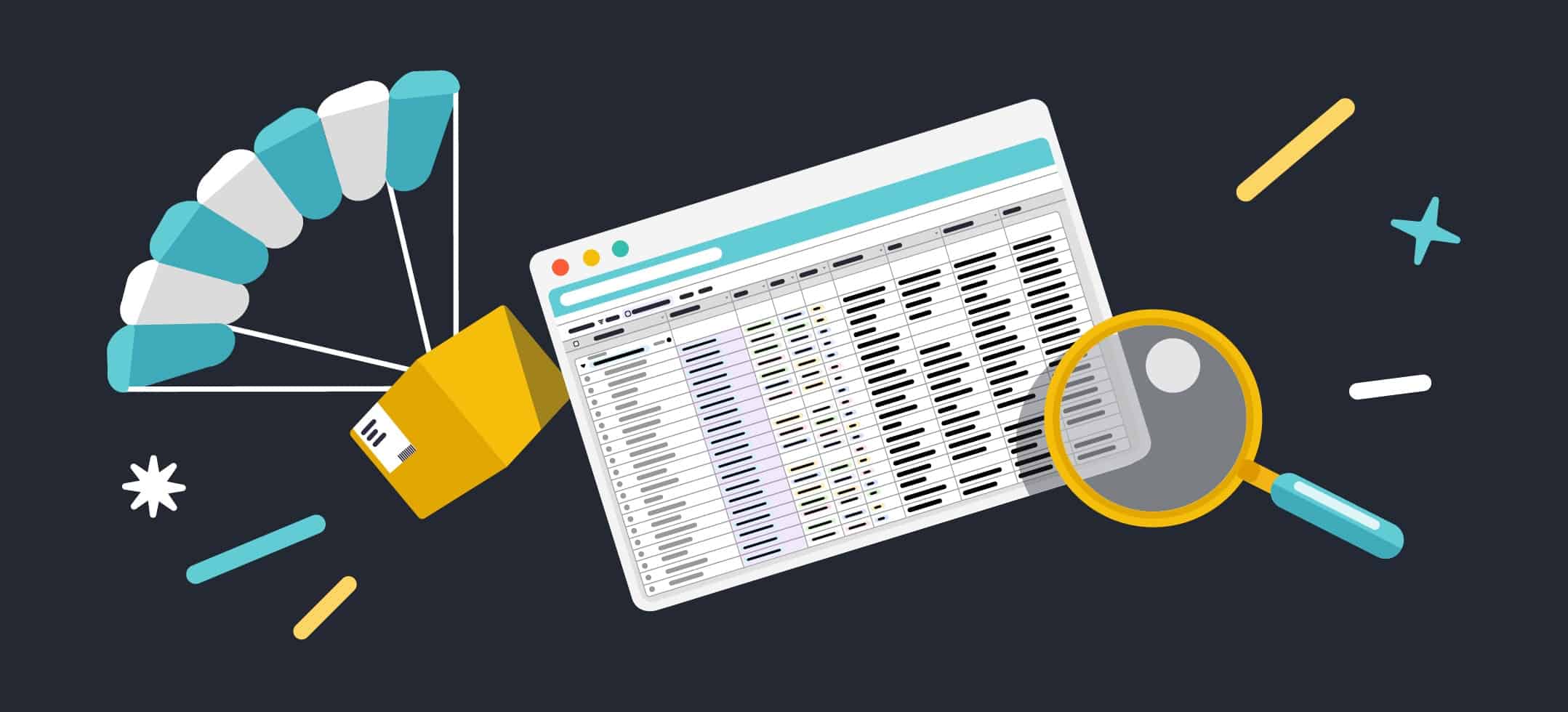
So, you’ve read up to this point which probably means you’re at least a little bit interested in starting your own private label business, if not very interested. In this section, we’re breaking down the steps you’ll need to take to get your private label business off the ground and up and running. Here’s where to start.
- Select a Niche: First things first, every business starts with a niche. Find the area of interest you’re going to focus on whether that’s a niche you’re personally interested in, a niche your current customers are already involved in or maybe even a niche that’s trending right now. If you’re not sure how to find and select a niche, check out our 500 Niches Guide to get started.
- Decide on a Product: Once you’ve narrowed down your niche, it’s time to find a product — or products — within that niche that you want to source from private label suppliers. Having an idea of what kind of product you want to sell will help you search for private label suppliers later on, so this step is important. Not sure if you have a good product idea or not? Run it through our Instant Product Evaluator Tool and it’ll give your product idea a score out of 100.
- Find a Private Label Supplier: Now that you have a product idea, it’s time to find someone who manufactures and supplies that product! Here’s where you turn to Google search results, online directories or Alibaba to find the supplier for your business. We’ve curated a list of suppliers in our Private Label Manufacturers Directory so you don’t have to do all the digging yourself.
- Order Samples: Narrow your supplier search down to one or two suppliers and then order samples from them to see what the products are like in real life. This step is crucial to starting your private label business and should not be skipped. Order as many samples as you need to and make as many adjustments to them as you need to, too. You want to make sure your product is exactly what you’re looking for.
- Order Products: Once the samples are perfect, order your products! You’re going to need stock when you launch your store’s website, so get that stock ready. If you’re starting a completely new business from scratch and you have no prior audience built up, we recommend starting with the lowest amount of products as you can possibly order. You don’t want to sit on too much stock if you don’t have to, so don’t put that kind of pressure on yourself. This especially applies if your product is perishable (like food and beverage products) or if your product style can become outdated (like phone cases when new smartphones get released on the market).
- Choose an Ecommerce Platform: You’re going to need an online store to sell your products on, so choose the best ecommerce platform for your type of business. Check out our comprehensive Ecommerce Platforms 101 blog post or our Personalized Ecommerce Platform Recommendation Tool to find the right one for you.
- Set Up Your Online Store: Get your ecommerce store ready for opening day! Make sure to check out our One Page Ecommerce Business Plan so you don’t miss a single step.
- Launch Your Online Store: Once your store is ready, your products are stocked and you’ve run through every last minute part of the setup process with our Launch Checklist, then you’re good to go! Start selling your private label products!
- Gain Traffic: Just because you build it does not mean they will come. If you launched your ecommerce store to the sound of crickets, it’s time to get working on driving traffic to your online store. There are so many ways to get started with this, we recommend checking out these 6 Ways to Increase Website Traffic.
- Increase Conversions: When you get people coming to your online store, it’s time to optimize your store for conversions so they’re buying as many of your private label products as you can get them to. Again, there are so many ways to do this, so start off with these 10 Ways to Increase Sales.
Conclusion
You now should have a foundational understanding of what private label is, how the private label process works, how to work with private label manufacturers and how to get your own private label business started! Don’t forget to download our Private Label Manufacturers Directory to get started sourcing products for your private label business.

